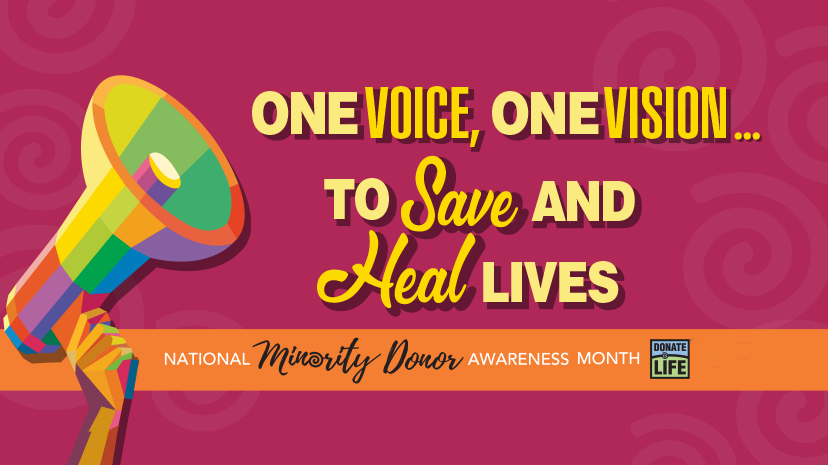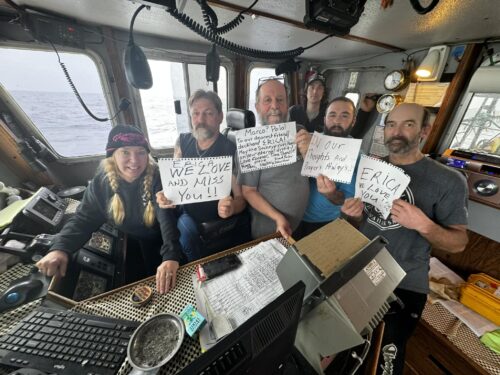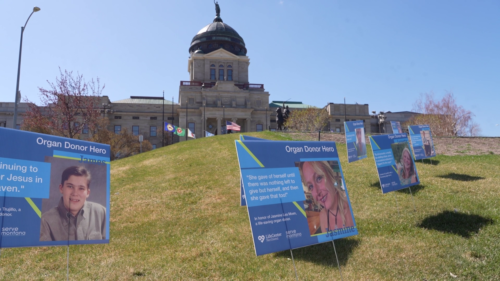LifeCenter Northwest Joins National Effort to Advocate for Organ, Eye and Tissue Donation in Multicultural Communities
LifeCenter Northwest, in collaboration with the National Multicultural Action Group, will focus outreach and storytelling on multicultural communities throughout August in observance of National Minority Donor Awareness Month.The National Multicultural Action Group is comprised of leaders from the Association for Multicultural Affairs in Transplantation, Association of Organ Procurement Organizations, Donate Life America, National Minority Organ Tissue Transplant Education Program and National Kidney Foundation. This first-time and month-long observance stems from National Minority Donor Awareness Week, founded in 1996 with the goal of raising awareness of donation and transplantation in multicultural communities— an effort to reduce the disproportionate number of people of color awaiting life-saving organs in our country.
“While it’s critical that we nurture diversity year-round by encouraging donation within communities of color,” says LifeCenter Northwest President and CEO Kevin O’ Connor. “We strive to make a measurable impact now by partnering with national organizations to build trust and create a positive culture around organ, eye and tissue donation.”
Our voices are united to address the number one problem in transplantation: the gap between the demand for organ transplants and supply of donated organs. The waiting list currently stands at more than 100,000 with more than 60% representing people of color. Even though a record number of nearly 40,000 people, including more than 18,000 racial and ethnic minorities, received the gift of life in 2019, the gap remains staggeringly high. On average, 20 people die each day waiting for a transplant.1
Waitlist patient Joyce Brooks, a mother and veteran from Anchorage, is awaiting ‘the call’ for a double-lung transplant. She was diagnosed with Pulmonary Fibrosis in 2012 and relocated last February to Renton, Wash. to be near her transplant center. Joyce left her son in the care of his dad in Anchorage, and due to her advancing lung disease and the risk of COVID-19, she and her family have not been able to travel to see each other.

“I’m most looking forward to getting back to my son and enjoying life with him,” says Joyce. “He starts kindergarten this 20-21 school year. I long to watch him learn, mature, and help him to grow during these very impressionable years. Honestly, until I got sick to the point of needing a transplant, I had not even thought about the importance of organ donation. [Now] donation means everything to me. It gives me a chance for a new life! I’ve always given back to my community through volunteering in some capacity and I’m excited to be able to do that again.”
On average, Black transplant candidates wait longer than white transplant candidates for kidney, heart, and lung transplants.3 These healthcare disparities underscore the need for National Minority Donor Awareness Month education and outreach to help heal and save lives in our communities.
According to our partners at the United Network for Organ Sharing, organ transplantation can be successful regardless of the ethnicity of the donor and recipient. However, transplant success rates increase if the donor and recipient share compatible blood types and tissue markers. Therefore, it’s vital that we expand the pool of donors, now and always, to ensure transplantation success for as many people as possible.
Register your decision to be an organ, eye and tissue donor at your local DMV or online at www.lcnw.org.
Click here for local recipient stories and donation statistics.
1Data from Organ Procurement and Transplantation Network (OPTN) data as of July 2020, https://optn.transplant.hrsa.gov/
2 National Kidney Foundation, as July 21, 2020, kidney.org
3 SRTR Risk Adjustment Model Documentation: Waiting List Models, as of July 21, 2020, https://www.srtr.org/reports-tools/waiting-list/
About LifeCenter Northwest:
Founded in 1997, LifeCenter Northwest serves nearly 8.3 million people as the federally designated organ procurement organization for Alaska, Montana, North Idaho and Washington. In addition, LifeCenter Northwest is an American Association of Tissue Banks accredited tissue recovery organization. The organization works collaboratively with over 200 hospitals. Last year, LifeCenter Northwest saved more lives than ever before by recovering 878 organs for transplant from 271 donors. For more information, or to register to be an organ, eye, and tissue donor, go to www.lcnw.org.
More on National Minority Donor Awareness Month:
National Multicultural Action Group partners, the Association for Multicultural Affairs in Transplantation (AMAT), Association of Organ Procurement Organizations (AOPO), Donate Life America (DLA), National Minority Organ Tissue Transplant Education Program (MOTTEP) and National Kidney Foundation (NKF), have developed the National Minority Donor Awareness Month Toolkit — now available for download and public dissemination at DonateLife.net. For resources, please visit DonateLife.net/nmdam. Stories, donation facts, statistics, and general social media graphics are available in both English and Spanish. Please use hashtag #NMDAM when sharing and supporting National Minority Donor Awareness messages and information on social media.







